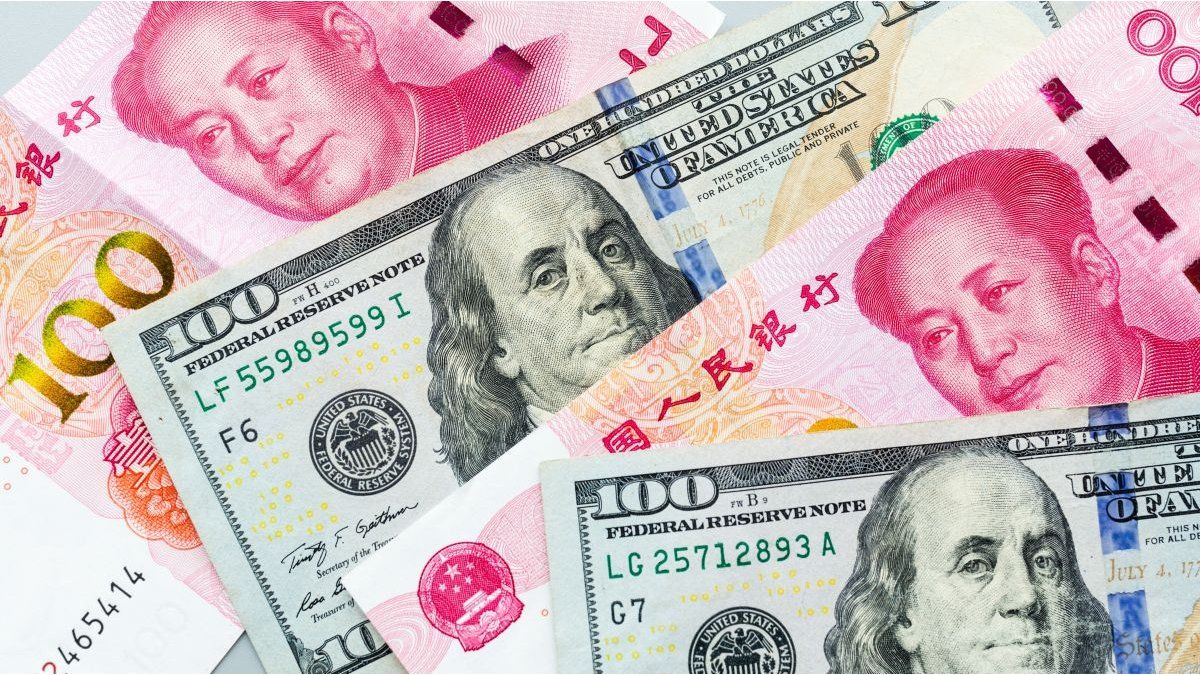China sold a record amount of Treasury Department bonds and from United States agencies in the first quarter of this year, in amid growing trade tensions between both countries.
According to estimates made by Bloombergbased on the latest Treasury data, Beijing sold $53.3 billion in US bonds combined during the first three months of 2024. While Belgium, considered a custodian of Chinese holdings, also reduced its holdings by 22 billion during the same period, according to data from the US Treasury Department.
“As China is selling even though we are closer to a Federal Reserve rate cut cycle, there should be a clear intention to diversify away from US dollar holdings,” said Stephen Chiu, chief currency and rates strategist. Asia at Bloomberg Intelligence.
The Chinese investment movements in the US. They have become more striking recently, amid signs that tensions between Washington and Beijing may worsen. This due to the President Joe Biden’s measures to sharply raise tariffs on a series of strategic Chinese imports.
The dollar loses weight in China’s reserves
The US bonds in Chinese power fell in just one year by more than US$100,000 million. China currently has just over $767 billion in American debt, the smallest amount since 2009.
In recent years, Beijing has reduced its weight among ‘foreign holders’ of US debt rapidly in recent years: from 2021 to 2023, the reduction in US debt in Chinese hands has been more than $300 billion. an amount that exceeds the entire Portuguese economy (with a GDP of 260 billion dollars). Japan remains the largest ‘holder’ of American Treasury bonds, with almost 1.2 trillion dollars.
While the dollar loses weight among Chinese reserves, gold continues to ‘get fat’. The diversification strategy is being fast and clear: Gold now represents almost 5% of all Chinese reserves, the highest percentage since at least 2015, as revealed by the agency Bloomberg.
“The People’s Bank of China is not required to disclose all of its gold purchases and there is reason to believe that he is buying more gold than he publicly reports. The World Gold Council’s estimate of total gold purchases by all the world’s central banks has far exceeded the officially published increases in reserves since 2022,” point out the experts at Gavekal Research.
gold dollar reserves.jpg
The Chinese Central Bank increased its participation in gold
The independence of the dollar
From Bloomberg explain, beyond diversification as a strategy, China is also de-dollarizing its reserves as a geopolitical tool to reduce the ‘power’ of the greenback in the global monetary system. Fear of US sanctions following the freezing of Russian dollar-denominated assets in response to the invasion of Ukraine triggered this pattern for the first time among the central banks of countries that are not US allies.
In a speech earlier this month, Gita Gopinath, the deputy director of the International Monetary Fund (IMF) admitted that the increase in gold purchases by central banks in the last two years – the “most notable development” in global foreign exchange reserves during that period– points to a movement of countries to protect themselves from western sanctions. As Gopinath noted, despite its very limited use in transactions, gold is generally considered a “safe and politically neutral asset” that can be stored in the country of origin and protected from sanctions or seizures.
As Gopinath highlighted, the share of gold in China’s foreign exchange reserves more than doubled to 4.9% today from less than 2% in 2015. Over the same period, China’s valuation-adjusted holdings of U.S. Treasury bonds relative to total foreign exchange reserves fell about 30% from 44% previously, a more than notable 14-point drop.
Meanwhile, the share of gold in the foreign exchange reserves of the countries of the US bloc has remained practically stable, demonstrating that “the foreign exchange reserve managers tend to increase holdings of gold to protect against economic and geopolitical uncertainty, including the risk of sanctions,” says the IMF expert.
It is the dollar, the world’s dominant currency and symbol of American power, that will likely be affected as geopolitical tensions encourage countries to increase their holdings of gold and other currencies, which could gradually erode the fiscal and commercial advantage that the United States grants by having the most important reserve currency in the world.
Source: Ambito




